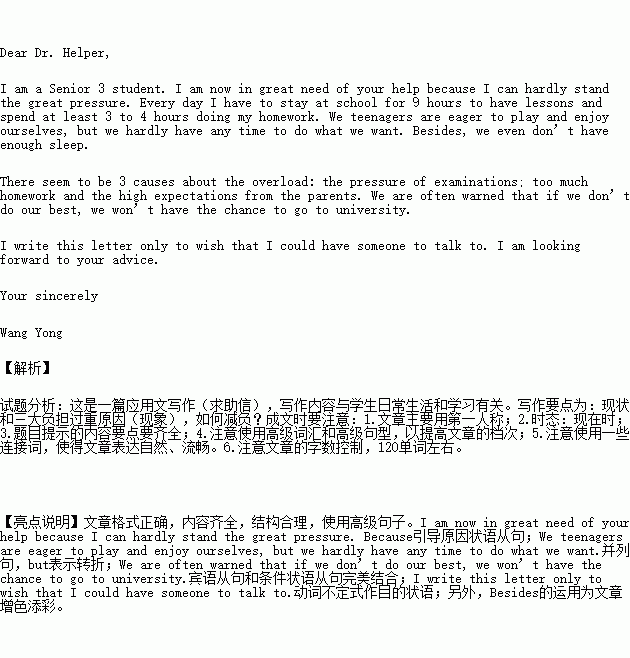Living and dealing with kids can be a tough job these days, but living and dealing with parents can be even tougher.
If I have learned anything in my 16 years, it is that communication is very important, both when you disagree and when you get along. With any relationship, you need to let other person know how you are feeling. If you are not able to communicate, you drift apart. When you are mad at your parents, or anyone else, not talking to them doesn’t solve anything.
Communication begins with the concerns of another. It means that you can’t just come home from school, go up to your room and ignore everyone. Even if you just say “Hi”, and see how their day was for five minutes, it is better than nothing.
If you looked up the word “communication” in a dictionary, it would say “the exchange of ideas, the conveyance (表达)of information, correspondence (通信), means of communication: a letter or a message”. To maintain (保持) a good relationship, you must keep communication strong. Let people know how you feel, even if it’s just by writing a note.
When dealing with parents, you always have to make them feel good about how they are doing as a parent. If you are trying to make them see something as you see it, tell them that you’ll listen to what they have to say, but ask them politely to listen to you. Yelling or walking away only makes the situation worse.
This is an example: one night, Sophie went to a street party with her friends. She knew she had to be home by midnight after the fireworks, but she didn’t feel she could just ask to go home. That would be rude. After all, they had been nice enough to take her along with them. Needless to say, she was late getting home. Her parents were mad at first, not when Sophie explained why she was late, they weren’t as mad and let the incident go. Communication is the key factor here. If Sophie’s parents had not been willing to listen, Sophie would have been in a lot of trouble.
Communication isn’t a one-way deal: it goes both ways. Just remember: if you get into a situation like Sophie’s, telling the other person how you feel-listening is the key factor to communication.
1.In the writer’s view, dealing with parents is __________ than with children.
A. more difficult
B. easier
C. more uninteresting
D. more interesting
2.The main idea of the second paragraph is __________.
A. the importance of friendship
B. to make your feeling known to others
C. the importance of communication
D. the disagreement between generations
3.When parents and children are in communication, the key to a happy relationship is that __________.
A. children should always obey their parents
B. they should be equal
C. parents play the leading part
D. both make the opposite know their feelings
4.The example in this passage proves that ___________.
A. Sophie’s parents are willing to listen to her
B. Sophie is very polite to her parents
C. Sophie did well in explaining her being late
D. communication is the solution(解决办法) to misunderstanding
5.All the following statements are correct except “_______”.
A. If you don’t agree with others, you’d better let them know
B. It is better to say “Hi” to others than say nothing
C. If you are not able to communicate, walk away
D. Communication is a two-way deal
 优质课堂快乐成长系列答案
优质课堂快乐成长系列答案
